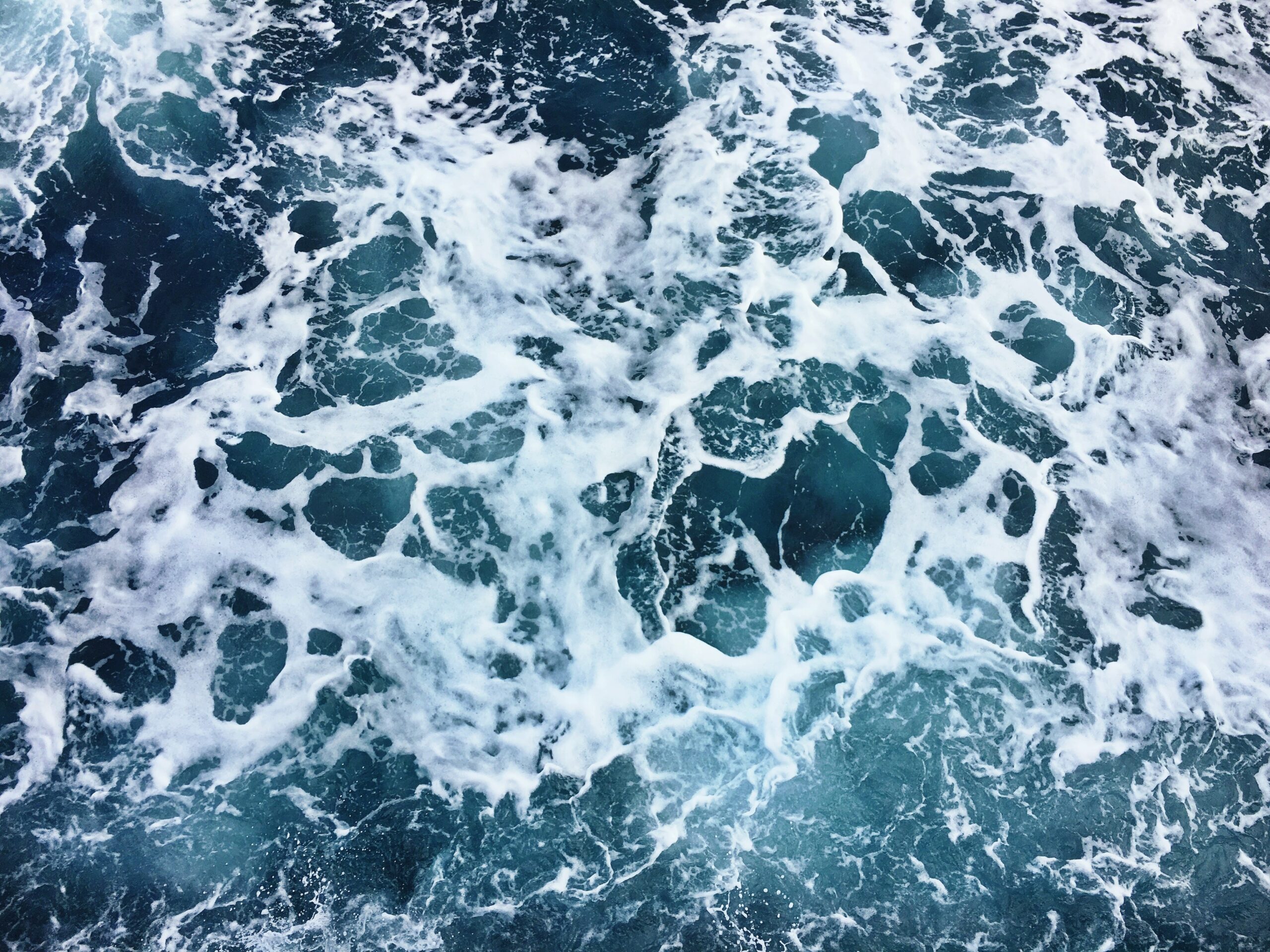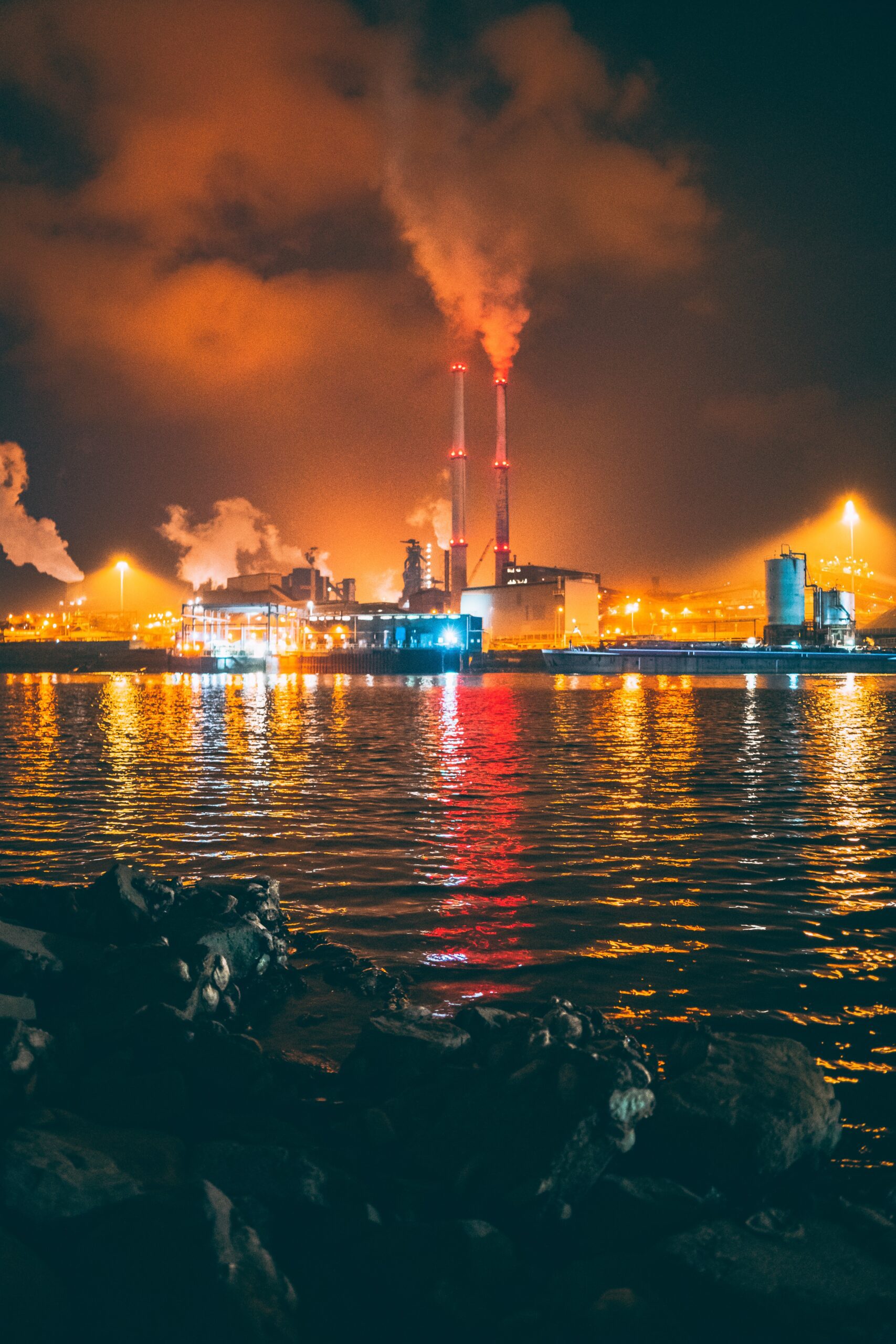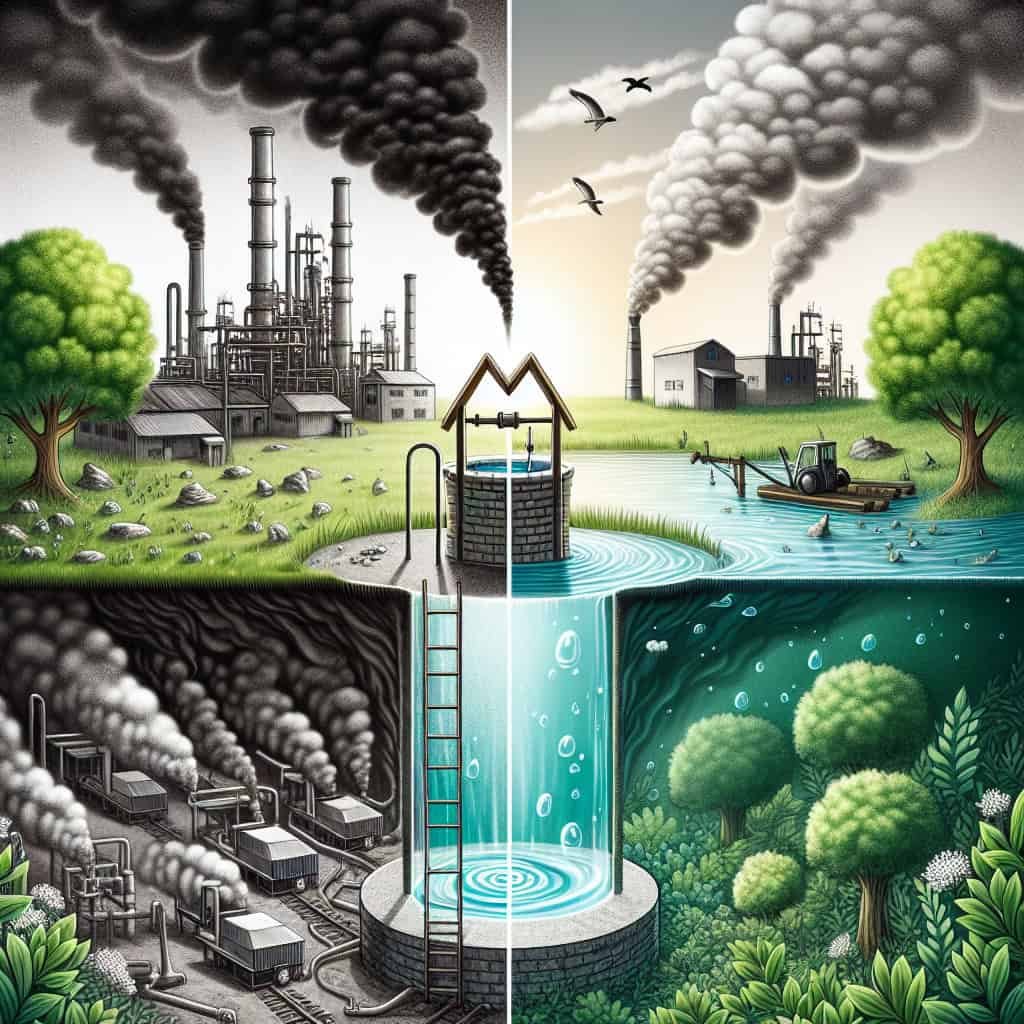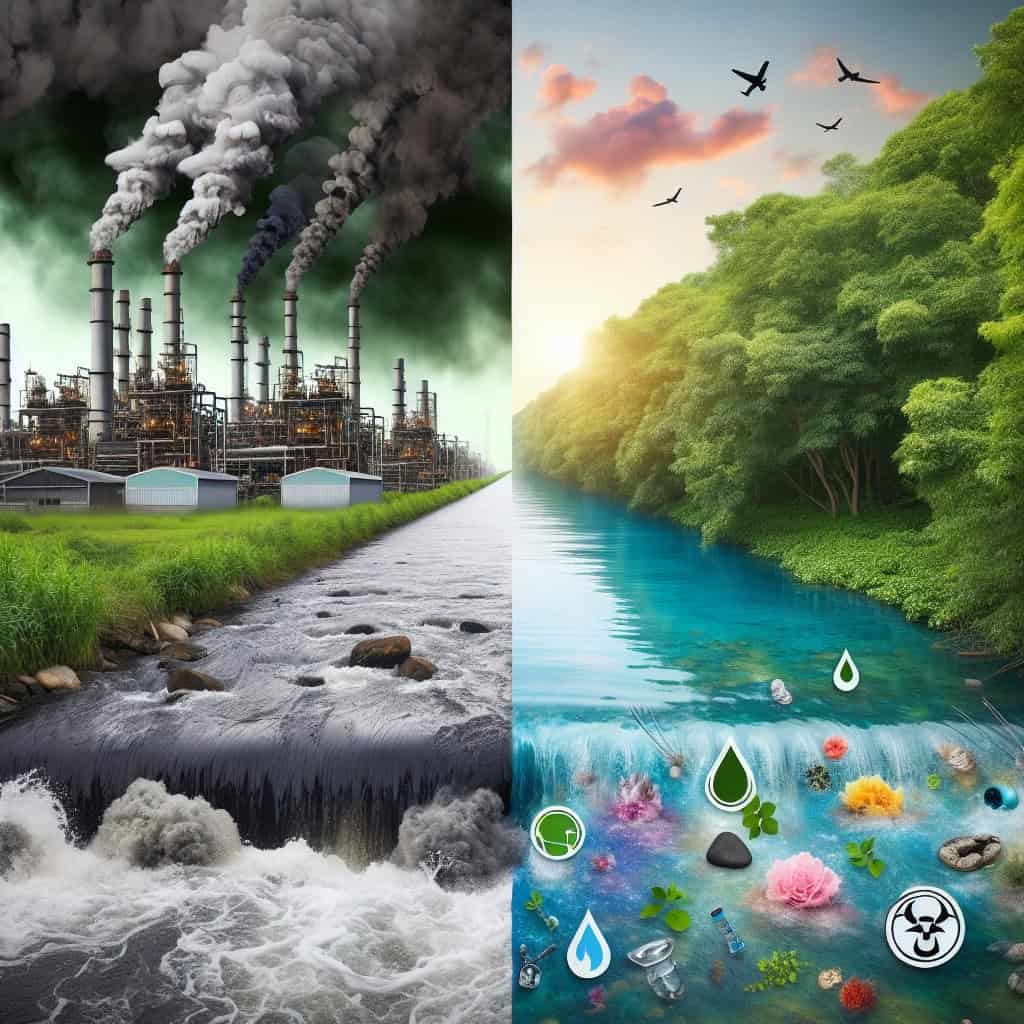If you are concerned about the presence of industrial chemicals contaminating your well water, rest assured that you are not alone. With increasing industrial activities, it has become crucial to address this issue to ensure the safety of our water sources. Fortunately, there are effective methods available to eliminate well water contamination caused by industrial chemicals. In this article, we will explore some of these solutions and provide you with actionable steps to safeguard the quality of your well water. So, let’s dive in and discover the ways to rid your well water of harmful industrial chemical pollutants.
Understanding Well Water Contamination
Well water contamination occurs when industrial chemicals, such as solvents, heavy metals, pesticides, and fertilizers, infiltrate the groundwater supply. These contaminants can originate from various sources, including manufacturing plants, industrial waste disposal sites, and agricultural activities.
Sources of Industrial Chemical Contamination
Industrial chemical contamination can arise from a multitude of sources. Manufacturing plants often release harmful chemicals into the environment through improper waste disposal or accidental spills. Additionally, agricultural activities, such as pesticide and fertilizer application, can lead to contamination through runoff or seepage into groundwater.
Effects of Industrial Chemical Contamination on Well Water Quality
The presence of industrial chemicals in well water can have detrimental effects on both human health and the environment. Consuming contaminated water can lead to serious health issues, including organ damage, developmental problems, and increased cancer risk. Furthermore, chemical contamination can degrade ecosystems and harm aquatic life, disrupting delicate natural balances.
Testing for Industrial Chemical Contamination
To determine if well water is contaminated by industrial chemicals, water samples must be collected and tested. This process involves following specific procedures to ensure accurate results.
Collecting Water Samples
When collecting water samples, it is important to use clean, sterile containers to prevent contamination. Start by running the water for several minutes to flush out any stagnant water in the pipes. Then, carefully fill the sample containers, making sure not to touch the inside of the lids or containers. Label each sample with relevant information, such as the location and date of collection, to keep track of the data.

Hiring a Professional Testing Service
For comprehensive and reliable results, it is advisable to hire a professional water testing service. These experts have specialized knowledge and equipment to accurately analyze the samples for industrial chemical contamination. They can conduct a wide range of tests to identify specific contaminants and provide detailed reports on the water quality.
Interpreting Test Results
Once the test results are available, it is important to understand their implications. The professional testing service can help interpret the results, explaining the presence of any industrial chemicals and their potential health effects. Based on the findings, appropriate actions can be taken to address the contamination issue.
Preventing Industrial Chemical Contamination
Prevention is crucial in ensuring the safety of well water from industrial chemical contamination. By taking proactive measures and implementing best management practices (BMPs), the risk of contamination can be significantly reduced.
Identifying Potential Contamination Sources
Identifying potential sources of industrial chemical contamination is the first step in prevention. Conduct a thorough assessment of the surroundings, including nearby manufacturing facilities, waste disposal sites, and agricultural areas. By understanding the nearby activities and their potential impact on the well water, appropriate preventive measures can be implemented.
Implementing Best Management Practices (BMPs)
Implementing BMPs is essential to minimize the risk of contamination. These practices include proper waste management, such as disposing of chemicals in accordance with regulations, storing them securely, and using them responsibly. Additionally, proper handling of fertilizers and pesticides in agricultural activities can prevent contamination through runoff or leaching.

Regular Inspection and Maintenance
Regular inspection and maintenance of well systems are crucial to prevent contamination. Conduct routine checks to ensure the integrity of the well casing, seals, and other components. Address any issues promptly to prevent potential breaches and contamination. Regularly test the water quality to monitor any changes and take immediate action if contamination is detected.
Remediation Techniques for Well Water Contamination
If well water is found to be contaminated with industrial chemicals, remediation techniques can be employed to treat the water and restore its quality.
Activated Carbon Filtration
Activated carbon filtration is an effective method for removing certain industrial chemicals from well water. This process involves passing the water through a carbon filter, which adsorbs the contaminants. Activated carbon filters can remove organic chemicals, such as solvents and pesticides, improving the water quality.
Reverse Osmosis Systems
Reverse osmosis systems utilize a semi-permeable membrane to separate contaminants from the water. The water is forced through the membrane, while the contaminants are trapped and removed. This technique is particularly effective for removing dissolved solids, heavy metals, and other contaminants from well water.
Ion Exchange Systems
Ion exchange systems involve the exchange of ions between the water and a resin material. This process effectively removes heavy metals, such as lead and cadmium, by replacing them with harmless ions. Ion exchange systems can improve the overall water quality and reduce the risk of industrial chemical contamination.

Oxidation and Reduction Processes
Oxidation and reduction processes involve the use of chemicals, such as hydrogen peroxide or chlorine, to oxidize or reduce the contaminants in the water. This can break down organic compounds, destroy bacteria and viruses, and neutralize certain industrial chemicals. These processes are commonly used in combination with other treatment techniques for effective remediation.
Air Stripping
Air stripping is a technique that removes volatile organic compounds (VOCs) from well water. It involves introducing air into the water, causing the VOCs to evaporate and be vented out. This process effectively reduces the concentration of VOCs, improving the quality of well water.
Implementing Treatment Systems
Implementing appropriate treatment systems requires careful consideration and consultation with water treatment experts.
Consulting with Water Treatment Experts
When selecting and implementing treatment systems, it is important to consult with water treatment experts. These professionals can assess the specific water contamination issues and recommend suitable treatment options based on the contaminants present, the desired water quality, and the well system.
Selecting the Appropriate Treatment System
Based on the expert recommendations, select the treatment system that best suits the needs of the well water. Consider factors such as the effectiveness against the specific contaminants, system maintenance requirements, installation costs, and long-term reliability.

Installation and Configuration
Proper installation and configuration of the treatment system are crucial for optimal performance. Follow the manufacturer’s guidelines and ensure that the system is set up correctly. Regularly inspect and maintain the treatment system to ensure its efficiency and continue providing safe, contaminant-free water.
Considering Alternative Water Sources
If remediation proves challenging or ineffective, considering alternative water sources can be a viable option to ensure access to clean water.
Connection to Municipal Water Supply
Connecting to a municipal water supply can provide a reliable source of clean water. Contact the local water utility to inquire about availability and the process for connecting to their supply. While this option may involve additional costs, it offers a long-term solution to well water contamination.
Rainwater Harvesting Systems
Rainwater harvesting systems collect and store rainwater for various uses, including drinking water. These systems involve the collection of rainwater from rooftops or other surfaces and its filtration and treatment before use. While rainwater is generally free from industrial chemical contamination, proper filtration and treatment are necessary to ensure its safety.
Water Delivery Services
Water delivery services can provide a temporary or long-term solution for accessing clean water. These services typically deliver bottled or bulk water to homes, ensuring a safe and reliable source of drinking water. Regularly test the delivered water to ensure its quality and select a reputable service provider.

Regulatory and Legal Considerations
Understanding the relevant regulations and seeking legal advice can help navigate the complexities associated with well water contamination.
Understanding Local and Federal Regulations
Become familiar with local and federal regulations regarding well water contamination and industrial activities. These regulations govern the proper handling, storage, and disposal of chemicals to protect the environment and public health. Adhering to these regulations is crucial to prevent contamination and avoid legal consequences.
Seeking Legal Advice
In case of severe contamination or legal disputes, seeking legal advice is recommended. An attorney experienced in environmental law can provide guidance and help protect your rights and interests. They can advise on potential liabilities, legal recourse, and actions to address the contamination issue.
Community Engagement and Advocacy
Engaging with the community and advocating for responsible practices can contribute to preventing well water contamination.
Building Awareness and Education
Raise awareness about well water contamination by organizing community events, workshops, or public meetings. Educate residents about the risks associated with industrial chemical contamination and provide information on preventive measures and available resources. Encourage community members to take action to protect their well water.
Collaborating with Local Authorities and Organizations
Collaborate with local government authorities, environmental organizations, and other community stakeholders to address well water contamination concerns. Work together to establish monitoring programs, share resources, and implement effective strategies to prevent and remediate contamination. Pooling resources and knowledge can lead to more impactful and sustainable solutions.
Promoting Responsible Industrial Practices
Advocate for responsible industrial practices within your community. Engage with local businesses and industries to encourage the use of safer alternatives, proper waste management, and environmentally-friendly practices. By promoting responsible industrial practices, the risk of well water contamination can be significantly reduced.
Monitoring and Regular Testing
Establishing a routine monitoring schedule and maintaining proper testing equipment are essential for early detection of any contamination and ensuring ongoing water quality.
Establishing a Routine Monitoring Schedule
Regularly monitor the water quality of your well by establishing a routine monitoring schedule. It is recommended to test the water at least once a year for contaminants, and more frequently if there are potential contamination sources nearby. This proactive approach allows for early detection of any issues and prompt actions to address them.
Maintaining Proper Testing Equipment
Invest in reliable testing equipment and ensure that it is properly maintained. Calibrate the testing equipment regularly and store it in a clean and dry environment to maintain its accuracy. Follow the manufacturer’s instructions for proper use and maintenance to ensure reliable and consistent results.
Interpreting Results and Taking Action
After conducting water tests, it is crucial to interpret the results accurately. If contamination is detected, take immediate action to address the issue. Consult with water treatment experts, local authorities, or regulatory agencies to determine appropriate remediation methods and protect the health of the community.
Emergency Response and Preparedness
Creating an emergency response plan, accessing emergency water sources, and building a comprehensive emergency kit are crucial for preparedness in case of well water contamination emergencies.
Creating an Emergency Response Plan
Develop an emergency response plan specific to well water contamination. Identify potential emergency scenarios, establish communication channels, and outline step-by-step procedures for addressing the contamination, ensuring the safety of affected individuals, and seeking assistance from appropriate authorities.
Accessing Emergency Water Sources
Identify alternative sources of emergency water in case of contamination incidents. This can include nearby municipal water supplies, designated emergency water stations, or bottled water. Ensure that everyone in the household or community knows how to access these alternative water sources and has the necessary resources to do so.
Building a Comprehensive Emergency Kit
Prepare a comprehensive emergency kit that includes essential items such as bottled water, water purification tablets or filters, disinfectants, and first aid supplies. This kit will ensure access to clean water during emergency situations and provide the necessary tools to address immediate needs until assistance arrives.
With a comprehensive understanding of well water contamination, regular testing and monitoring, implementation of preventive measures, and access to appropriate treatment systems, you can eliminate or mitigate the risks posed by industrial chemical contamination. By taking proactive steps and promoting responsible practices, you can protect your well water and contribute to a healthier environment for yourself and your community. Remember, the safety and quality of your well water are within your control, and with the right knowledge and actions, you can safeguard the well-being of those who rely on it.

